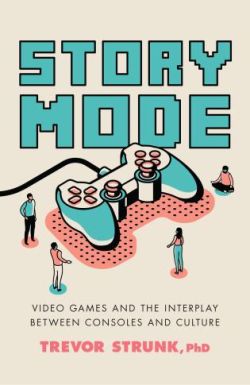 Trevor Strunk is the host of the No Cartridge podcast, though you might also know him as @Hegelbon on Twitter. As of today, he is also the author of Story Mode: Video Games and the Interplay Between Consoles and Culture, which was recently published by Prometheus Books.
Trevor Strunk is the host of the No Cartridge podcast, though you might also know him as @Hegelbon on Twitter. As of today, he is also the author of Story Mode: Video Games and the Interplay Between Consoles and Culture, which was recently published by Prometheus Books.
Story Mode looks to examine how several popular game franchises (such as Call of Duty) have changed over the years, as well as how those games have begun to rewrite our culture in their own way:
In Story Mode, video games critic and host of the No Cartridge podcast Trevor Strunk traces how some of the most popular and influential game series have changed over years and even decades of their continued existence and growth. We see how the Call of Duty games—once historical simulators that valorized conflicts like World War II—went “modern,” complete with endless conflicts, false flag murders of civilians, and hyperadvanced technology. It can be said that Fortnite’s runaway popularity hinges on a competition for finite resources in an era of horrific inequality. Strunk reveals how these shifts occurred as direct reflections of the culture in which games were produced, thus offering us a uniquely clear window into society’s evolving morals on a mass scale.
Story Mode asks the question, Why do video games have a uniquely powerful ability to impact culture? Strunk argues that the participatory nature of games themselves not only provides players with a sense of ownership of the narratives within, but also allows for the consumption of games to be a revelatory experience as the meaning of a game is oftentimes derived by the manner in which they are played.
An excerpt from Story Mode detailing the rise of id Software’s Doom and how it eventually gave way to “acceptable” violence in games (“How To Get Away With Making An Ultraviolent Video Game”) can be found at Defector.

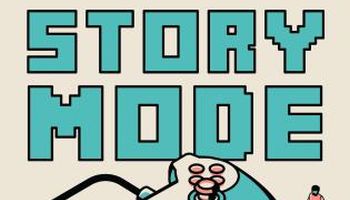
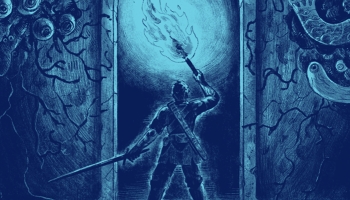
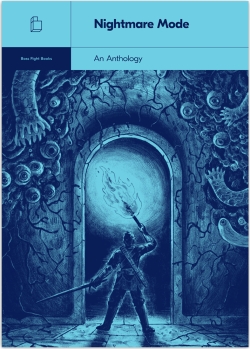 Promising “a fresh angle on a familiar topic,”
Promising “a fresh angle on a familiar topic,” 


 If you want a good overview of the video game industry’s early days, Steven L. Kent’s The Ultimate History of Video Games is a great place to start. Beginning with a quick primer on the pinball craze of the 1930s, the author quickly introduces readers to touchstones like Spacewar, Ralph Baer’s Brown Box, and Pong. Hitting all the highlights from the next 30 years over the book’s 600 pages, the story culminates with the launch of the PlayStation 2, GameCube, and Xbox in 2000-2001.
If you want a good overview of the video game industry’s early days, Steven L. Kent’s The Ultimate History of Video Games is a great place to start. Beginning with a quick primer on the pinball craze of the 1930s, the author quickly introduces readers to touchstones like Spacewar, Ralph Baer’s Brown Box, and Pong. Hitting all the highlights from the next 30 years over the book’s 600 pages, the story culminates with the launch of the PlayStation 2, GameCube, and Xbox in 2000-2001.
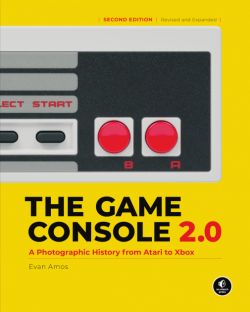 Evan Amos’s
Evan Amos’s 
 Thanks to his penchant for saying the right thing at the right time, Reggie Fils-Aime completely transformed Nintendo of America’s public image during his tenure as President and Chief Operating Officer from 2006 through 2019. For more than a decade, he played host and ringmaster during Nintendo’s public presentations and his irreverent attitude and larger-than-life persona encouraged fans to look at the company in a new light.
Thanks to his penchant for saying the right thing at the right time, Reggie Fils-Aime completely transformed Nintendo of America’s public image during his tenure as President and Chief Operating Officer from 2006 through 2019. For more than a decade, he played host and ringmaster during Nintendo’s public presentations and his irreverent attitude and larger-than-life persona encouraged fans to look at the company in a new light.


 Sonic the Hedgehog spin dashed his way into our hearts nearly 30 years ago, and Sega is celebrating in style with a hefty range of new projects featuring their “Blue Blur,” all of which will launch throughout the year and into 2022.
Sonic the Hedgehog spin dashed his way into our hearts nearly 30 years ago, and Sega is celebrating in style with a hefty range of new projects featuring their “Blue Blur,” all of which will launch throughout the year and into 2022.
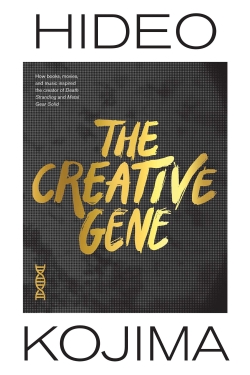 The ideas that have sprung from Hideo Kojima’s head throughout his career are often baffling… just look at the mindbending plot twists found in Death Stranding and the entire Metal Gear Solid franchise… but you have to admit that his games are always interesting.
The ideas that have sprung from Hideo Kojima’s head throughout his career are often baffling… just look at the mindbending plot twists found in Death Stranding and the entire Metal Gear Solid franchise… but you have to admit that his games are always interesting.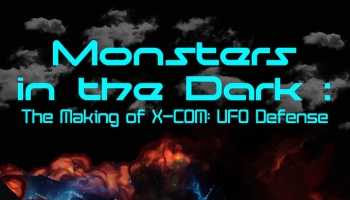
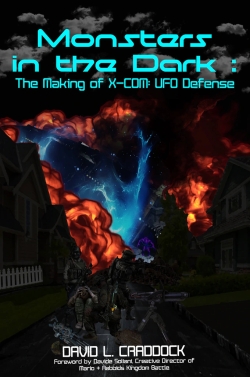 David L. Craddock previously delved deeply into the depths of Diablo’s development with 2013’s Stay Awhile and Listen Book I and 2019’s Stay Awhile and Listen Book II. This Summer, he’ll do the same for X-COM: UFO Defense in the upcoming Monsters in the Dark: The Making of X-COM: UFO Defense.
David L. Craddock previously delved deeply into the depths of Diablo’s development with 2013’s Stay Awhile and Listen Book I and 2019’s Stay Awhile and Listen Book II. This Summer, he’ll do the same for X-COM: UFO Defense in the upcoming Monsters in the Dark: The Making of X-COM: UFO Defense.